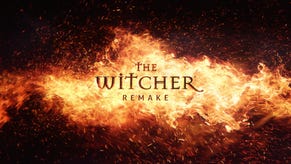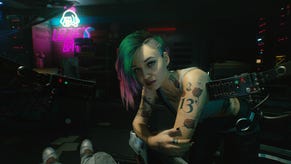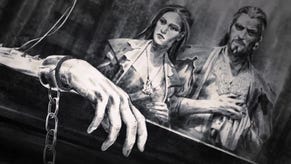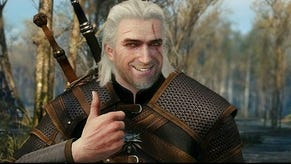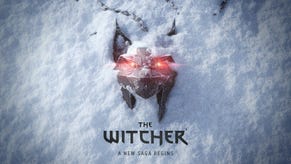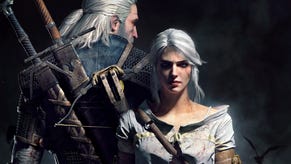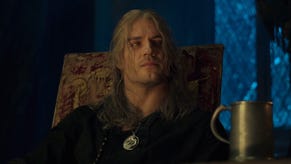RPS Interview: CD Projekt on The Witcher
While our own feelings about The Witcher hover around worthy-but-flawed, other folks felt it was easily last year's best RPG. And, honestly, that's more than enough to make it worth talking about here. Especially in light of the upcoming Enhanced Edition, which promises to redress the major complaints about the original.
I'm happily stunned that the new version's happening, both because it proves that I'm not alone in finding that dialogue akin to chatting with a crack-addled hobo makes it hard to love the game, and because perhaps I'll enjoy it this time around. It's rare enough that a game's most serious failings can be distilled into a key problem; rarer still that a game's creators hold their hands up to it; impossibly rare that they fix it. Kieron's take on the EE is that it's the sort of professional perfectionism that lead to the Star Wars special editions (as in making 'em slicker, not as in making Greedo shoot first), but I think of it more like some noisy young band taking the hipster scene by storm, then realising they need to learn to play their instruments properly if they want to make it /really/ big.
While we wait to find out what that new sound is like, we had a brief chat with CD Projekt RED's Michal Medej, the game's Chief Designer. Read on for his reasoning as to why the original translation fell down, how the Enhanced Edition fixes it, CD Projekt's future, thoughts on Bioware and Bethesda and, yes, those infamous nudey collector cards.
Congratulations on The Witcher's success. Did you expect it to prove so popular?
We always believed in it, that’s for sure. You can’t make games if you are not passionate, dedicated and convinced that you are making something extraordinary that will prove to be successful. That’s why I think saying we are “really surprised” would be simply insincere. Every developer silently expects a success and should deeply believe in it – it’s our internal “power source” that keeps us going through hard times. Still we are really happy that most people appreciated the idea behind The Witcher and understood what we wanted to achieve.
Was it daunting, breaking into a genre dominated by Bioware and Bethesda, and threatened somewhat by MMORPGs?
Personally I find it more motivational than daunting. It’s really fair competition and we are not “enemies” on the market, as there are very few good RPGs for players to choose from. Still, we do struggle to get the best reviews, scores and awards. I think we did really well because the genre tycoons grew a little overconfident and stuck to the old clichés. We had to come up with an idea for a new, fresh and modern RPG experience that would still feel familiar to Baldur’s Gate or Elder Scrolls fans. I think we were also a little faster in noticing that to compete with the more and more popular MMOs, you must offer a completely different experience. Many single-player RPGs still contain too many gameplay elements that are simply more exciting in a multiplayer game, like money grinding and random drops. Instead we focused on elements that just don’t play an important role in MMOs – a captivating storyline, meaningful choices, character interactions and emotions.
What caused the significant, let's say "differences", between the Polish and English dialogue in the original game?
It was hard lesson to be learned for us – the localization process. At beginning of the development we had to make production estimates for the amount of English text to be recorded, and we based it on our experiences with Polish localizations. The assumption we made was that, as Polish text after translation from English is usually about 20% longer, the reverse translation would be shorter by a similar amount. We just didn’t realize that we were using different measures – number of pages and number of words. Because of how the English language works out, the resulting translation was way too much for recording, which came into play at the very last stage of development. We had a really short time to edit all of the English dialogues, shortening them by 30%. So basically, the original translation was really good; it was just trimmed due to production.

How aware of them were you when the game shipped, and how important do you think it was to the English version of the game?
We were aware that the quality of text was not quite as high as the Polish one, that’s for sure. Still, as I said, it was at the last stage, when there was nothing to be done – we did our best to make English version as good as possible in the limited time that was available. However, it is still extremely important for us to produce an English version of AAA quality, which is part of the reason we are working on the Enhanced Edition right now. One of the main features will be an updated translation into English.
What, exactly, has been done to the dialogue in the Enhanced Edition?
Simply put, this time we are giving much more time to our writers, translators and editors, as they did a really good job, but lacked the time to polish it. Moreover, we now have feedback from players, so we’ve been able to thoroughly examine all dialogues and conversations. If necessary, we’ve translated them once more, then edited them so they don’t lack context, and finally, we recorded new voiceovers.
Why make an Enhanced Edition, rather than spend all that the time and money on an add-on or sequel?
It’s obvious – we want to make only perfect games, and that’s our priority. The Witcher is a great game that was flawed mostly because we didn’t have much production experience. Now we want to make it perfect. It might sound crazy, but we believe gamers will appreciate that. We want to achieve the reputation as one of those few developers that makes excellent and perfect games, even if it means taking more time and money to achieve that goal. I think it’s worth it.
Is The Witcher now as you always hoped it would be?
Hope is not a good word. We are a company with 14 years of experience as a publisher, so we don’t “hope” but rather “plan”. The Witcher was planned to be the cornerstone of our game development efforts – a AAA quality production that would be considered the best RPG of the year. It’s a goal we’ve now achieved. Given infinite money and time, we wouldn’t make more any changes than those already planned for Enhanced Edition. It’s time to move ahead with even more challenging goals in mind.
What element of the game are you most proud of?
There are many elements that, as a team and company, we are proud of. It’s really hard to pick only one of them, as every time I watch the game, I’m personally amazed with every single element – be it the beauty of the landscapes, hard-to-forget NPCs, vivid dialogues, exciting combat or just the charismatic Geralt himself. I think I’m mostly proud of the ending, which gives many answers, leaves some questions and makes you think about the whole story again – judging your own decisions and actions. It’s the kind of reflection not many games can give you.
What was the motive for making sex into a collectable card mini-game? Were alternative ways of including sexual content considered?
Our game is based on Sapkowski’s books, which are full of erotic content and even if there are not many sex scenes, the reader has a strong feeling that passion and lust are probably one of the most powerful driving forces in the world. We did wanted to express the same feeling in the game, and sticking to dialogues didn’t seem like enough – as it’s an RPG, the player should have freedom in his actions. We really tried to make it as subtle as possible, and came up with the idea of generally tasteful artwork that acts as some kind of collectible medieval pin-up girl. Of course the alternative was either to exclude erotic content from the game or show it much more realistically. I think we made the best possible choice.
Did you ever expect the cards to be controversial? And do you think the people who consider them offensive have a point?
It depends on the territory – in some countries we did think it would be controversial, especially in America, but not in Germany, for example. And the people who consider the cards offensive have a freedom of choice; they don’t have to collect them. Actually, those cards express their choices; so if the decided to have sex with a girl in the game, why would they feel offended by her naked breasts? And we really made those cards more into classy artwork than vulgar sex scenes, which I hope is obvious.
How did the need to be faithful to the novels affect what you wanted to do with the game?
Using a good license — because I’m not talking about making games based on some stupid ones — has all possible advantages over creating a universe from scratch, save one: you can’t invent your own IP. You get a well described and established universe that was proven to be commercial success. It helps not only with PR and marketing, but also makes internal communication much faster and precise. Not to mention that it doesn’t require huge amounts of time to prepare some consistent background, characters, names, places, maps, etc. And I don’t agree with some people who find that it limits their imagination – I’m pretty convinced that its limitations actually force you to be more creative.
Would The Witcher would have been very different if made by a Western developer? Or do the fundamental mechanics of a strong roleplaying game outweigh such cultural differences?
Cultural differences definitely have a great impact on the game. The Witcher would certainly have been different, even if it was made by another team in Poland. It might be quite similar if developed by another European company. It’d have been a completely different style of RPG if done by Americans. I can bet I’d never recognize it’s even “witcher-like” if the game had been made by a Japanese developer. I’m not even trying to imagine which would be better… but for sure they would be different.
We didn’t want to make a “Polish game” as we did want to make it universal and accessible for everyone all over the world. But still we encouraged our designers to use our own culture as a base for ideas, as it’s something we understand the best and can use to make The Witcher unique. I think it’s a question that requires a much expansive answer.
What next for CD Projekt RED? Is more Witcher the priority, or will you pursue new IPs and new genres?
Our goal is to establish The Witcher as a strong, worldwide brand and we are just at the beginning of that journey. So, for now, The Witcher is our priority and we have great plans connected with it for the next few years.
Were you guys affected by the passing of Gary Gygax? Would the Witcher have happened if D&D had never been?
I think we were the second cRPG web site that published news about his death, which proves he was really important for most people in the team. I’m completely sure that there wouldn’t be The Witcher without this guy, as even Sapkowski knows and played D&D. Even if you find many of The Witcher elements to be anti-Gygaxian, still we are just mere evolution of what he started.





